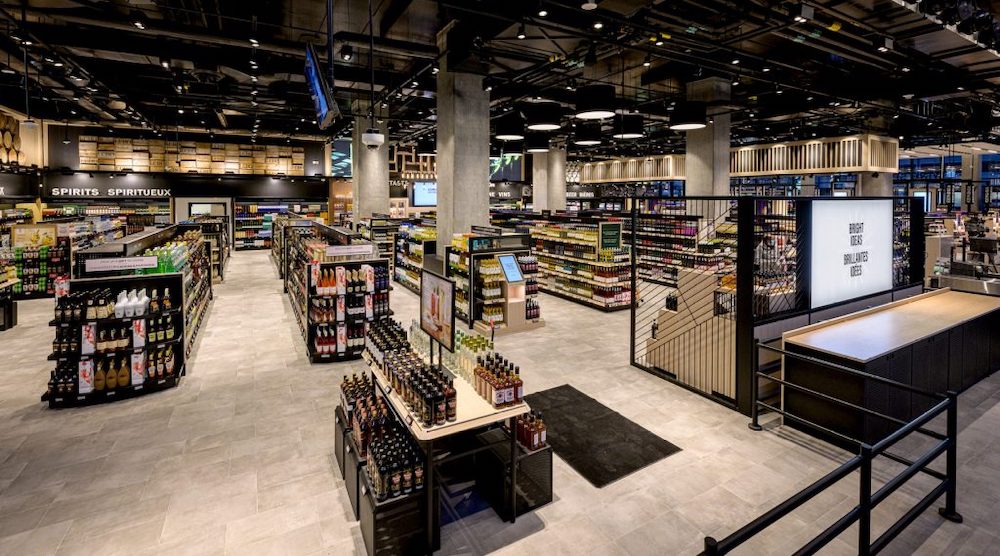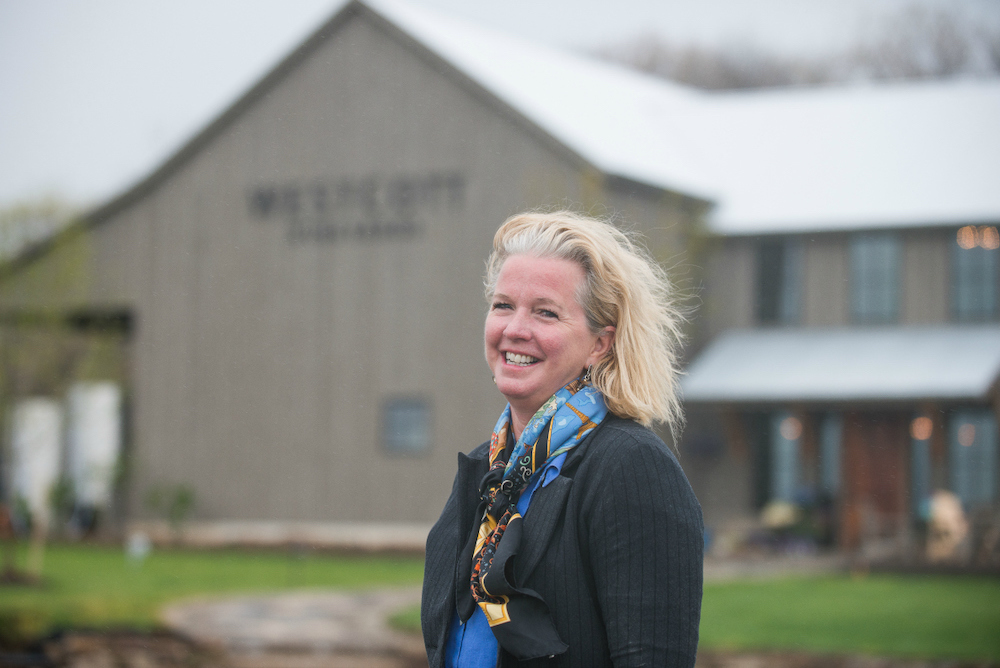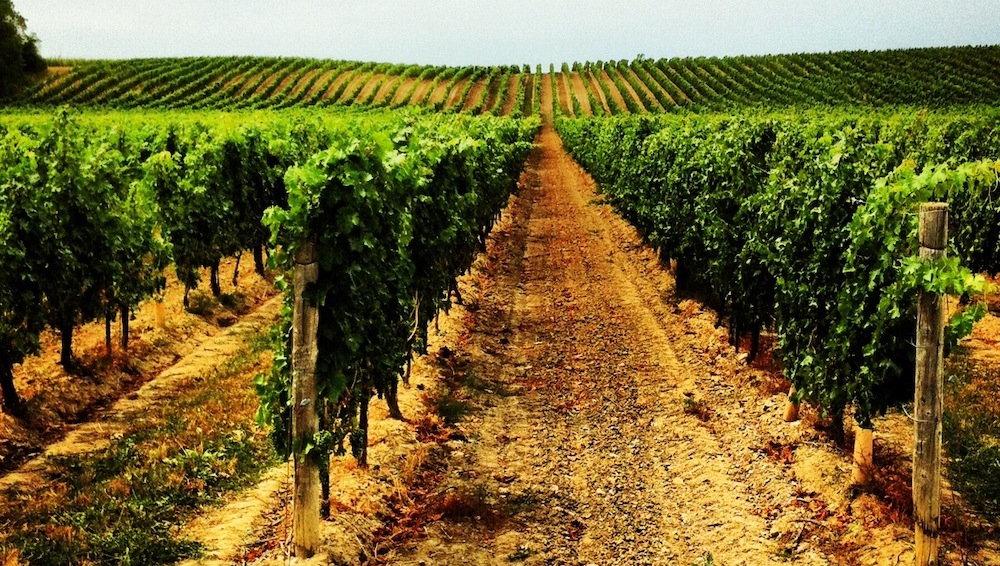By Rick VanSickle
In a rather startling letter to the LCBO, the provincial government has clearly expressed that it wants the Ontario booze monopoly to fix the historically low market share of 5.1% for VQA wines on their shelves.
Ontario finance minister Peter Bethlenfalvy, below, sent a detailed letter to Carmine Nigro, chair of the LCBO, listing several bullet points that point the way to increased market share for Ontario wines — and he wants it done this summer.

“With marketplace expansion around the corner and increased consumer demand for local Ontario products and those of other small producers, I am now directing the LCBO, under section 9 of the Liquor Control Board of Ontario Act, 2019, to create more opportunities to promote these products in LCBO’s retail and wholesale operations,” Bethlenfalvy’s letter said.
“In support of this direction, and while being mindful of Ontario’s trade obligations, I would like the LCBO to undertake the activities below during the lead up to and post launch of Phase 1 of retail expansion this summer. LCBO shall consult with government and stakeholders to inform these activities,” he wrote, and included several areas of improvement he would like to see take place. They include:
- Establish an internal/external champion who will lead the LCBO’s efforts to respond to consumer demands for local Ontario products.
- Establish a collaborative forum with local Ontario industries to understand the needs of the industry.
- Provide prominent merchandising space, signage, and promotional opportunities for small and local Ontario producers that reflect consumer trends and demands.
- Update LCBO public reporting to separate out and highlight the successes of small alcohol producers.
- Develop a plan to measure progress and targets in supporting these initiatives.
- Develop training supports for retail employees to highlight small and local Ontario alcohol producers, for which there is increased consumer demand and interest.
- Leverage LCBO Food and Drink and digital advertising assets to be an active partner for small and local Ontario alcohol producers.
- Implement supply chain and inventory strategies to better assist small and local Ontario alcohol producers in response to increased consumer demand for these products.
- Expand dealcoholized and non-alcoholic beverage offerings from small and local Ontario alcohol producers to support consumer trends.

The LCBO is a government agency that reports to the finance department. Last December Premier Doug Ford announced the government would direct the LCBO to promote and prioritize Ontario-made products and producers. However, until now there has been little movement on how that would happen.
The Ontario wine industry, especially the VQA-only wineries, has watched with dismay as its market share at the LCBO has plummeted to 5.1% in the latest numbers from July 23, 2023 to June 24 of 2024 with no move by the LCBO to do anything about it despite constant lobbying by wine industry groups in Ontario. That number, which only includes VQA wines sold at the LCBO, is down from 5.4% in the previous year while total sales for all wines in that time period have increased.

Carolyn Hurst (above), chair of Ontario Craft Wineries (OCW) and co-owner with her husband of Niagara’s Westcott Vineyards, was ecstatic with the finance minister’s letter. “I’m very grateful,” she said, “now it’s up to us to make this a positive thing, we need this to be a positive thing going forward.”
Hurst said that that the OCW has “tried to get the LCBO’s attention in terms of market share but weren’t getting anywhere.” Meanwhile, big international brands and even Canadian wine companies such as Peller and Arterra that sell International Domestic Blends, were gaining market share. Another sticking point for Ontario wineries is the way the LCBO tracks market share, which lumps in IDB wines (essentially made with 75% foreign wine and only 25% Ontario wine) for a market share that has grown to 30% and more at the LCBO. But only 7% of that is VQA and shrinking.
“We need to displace imports with locally grown and made Ontario products,” Hurst said. “This is great news for us. They (the government) have listened and given some direction to the LCBO to increase the VQA market share.”
Hurst added that she and the OCW are looking forward to working with LCBO president and CEO George Soleas and his team. “I think this is necessary. They (the government) want a change of attitude. It’s a good sign.”
Hurst said all the changes on the table couldn’t have come at a more crucial time. “We’re entering into a different world for the sale of beverage alcohol in Ontario and where and how people buy wine. Now there’s a commitment to local, to try and support us, and that’s fresh in the last 15 years.”

Richard Linley, president of Ontario Craft Wineries, agreed with Hurst. “Industry recommendations were shared with the government over the past few months and many, if not all, were adopted,” he told Wines in Niagara. “Recognizing the strike is still underway, the letter is a very positive harbinger for future discussions with the LCBO and its management. We look forward to meeting with officials and implementing this roadmap in the year ahead.”
In Nigro’s letter he also praised the work done and money raised by the LCBO, but also warned of the continuing drive to open up the booze retailing landscape. “When the government announced its vision in December of last year to deliver the same kind of choice and convenience enjoyed by other Canadians, we were clear that the LCBO would continue to play a central role in the new marketplace as a public asset. While some have a narrow view of what the LCBO can do, our government believes strongly that it is well placed for continued success.
“In fact, as the exclusive wholesaler of alcohol products to all existing and new retailers, as a distributor to business, and by retaining its own world-class retailing footprint that provides an exceptional customer experience and the widest array of product options in the marketplace, we know the LCBO will continue to succeed even as we provide people with more options.”
Nigro noted that there are doubters out there who don’t see the need for opening up the booze retailing business but offered assurances that “as a best-in-class wholesaler and retailer of alcohol, the LCBO will continue to make meaningful financial contributions to provincial coffers. LCBO revenue and the dividends paid to the government have continued to grow, even as successive governments have expanded alcohol sales to new retail stores and allowed bars and restaurants to sell alcohol with take-out and delivery. The evidence is clear: you can provide more choice while still generating revenue to invest in frontline government services. LCBO will continue to innovate and compete in this new marketplace as a valuable public asset.”
The post The LCBO ordered to do better on VQA market share at their stores appeared first on Wines In Niagara.










